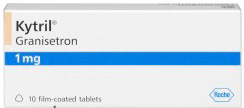Coumadin, also known as warfarin, is an anticoagulant medication used to prevent blood clots and reduce the risk of strokes, heart attacks, and other blood clot-related conditions. It belongs to a class of medications called vitamin K antagonists, which work by interfering with the clotting factors in the blood.
Warfarin is available in tablet form and taken orally. It is a widely prescribed drug and has been used for several decades to manage and prevent blood clotting disorders.
Safety Measures
While Coumadin is an effective medication, it is important to consider certain safety measures and contraindications before starting the therapy. Individuals who are allergic to warfarin or any of its components should not take the medication. Additionally, those with uncontrolled high blood pressure, a history of bleeding disorders or ulcers, or recent surgery (especially in the brain or spine) should avoid this medication. It is crucial to inform your healthcare provider if you have a history of frequent falls, alcohol abuse, liver or kidney disease, or are pregnant or breastfeeding.
Possible Side Effects
Like any medication, Coumadin may cause certain side effects. Common side effects include bruising, bleeding, and blood in urine or stools. Some individuals may also experience a rash, itching, or hair loss. It is important to seek immediate medical attention if you experience severe bleeding, coughing up blood, chest pain, sudden severe headache, or any signs of an allergic reaction like hives, difficulty breathing, or swelling of the face, lips, tongue, or throat.
Instructions for Coumadin
Proper administration and adherence to the instructions are vital for the effective and safe use of Coumadin. It is important to take this medication exactly as prescribed by your healthcare provider. Typically, it is taken once a day at the same time. Follow your healthcare provider’s recommended dosage. If a dose is missed, take it as soon as you remember unless it is almost time for the next dose. Do not double the dose to make up for the missed one.
Overdosing on Coumadin can have serious consequences. If you suspect an overdose or have taken more than the prescribed amount, seek immediate medical attention. Symptoms of overdose may include severe bleeding, prolonged bleeding from cuts, blood in urine or stools, bloody vomiting, or unusually heavy menstrual periods.
Drug Combinations
Coumadin can interact with several other medications, leading to potentially harmful effects, or reducing the effectiveness of either medication. Medications such as aspirin, nonsteroidal anti-inflammatory drugs (NSAIDs), antibiotics, antifungals, certain antidepressants, and some herbal supplements can interact with Coumadin. It is important to inform your healthcare provider about all the medications you are currently taking to avoid potential interactions.
The Answers You Need
- 1. Can I consume alcohol while taking Coumadin?
Alcohol can increase the risk of bleeding while taking Coumadin. It is important to limit or avoid alcohol consumption. - 2. What dietary restrictions should I follow while taking Coumadin?
Coumadin works by affecting the clotting factors dependent on vitamin K. It is necessary to maintain a consistent intake of vitamin K-rich foods. However, it is important to consult with your healthcare provider or a registered dietitian to ensure a proper balance. - 3. How often do I need to have my blood tested while taking Coumadin?
Regular blood tests, such as the international normalized ratio (INR), are necessary to monitor the effectiveness and safety of Coumadin therapy. The frequency of blood tests may vary depending on individual factors and treatment goals. - 4. Can I switch to a different medication if I am experiencing side effects with Coumadin?
It is important to consult your healthcare provider before discontinuing or switching medications. They can evaluate your specific situation and recommend alternative options, if necessary. - 5. Are there any alternative treatments to Coumadin?
There are several other anticoagulant medications available in the market. However, the choice of alternative treatment depends on various factors, including your medical history and condition. Your healthcare provider can guide you in selecting the most suitable option.






Reviews
There are no reviews yet.